|
|
|
I absolutely love this quote (shown above) by Thomas Jefferson. For me it is a foundational axiom of household organization. If applied mindfully and intentionally, a person can use this maxim to create the kind of space that speaks to the soul, a space where one can not only feel at home, but also at peace. The problem is, most of us do not approach the establishment, organization, and maintenance of our homes with this adage in mind. Instead of carefully curating a space that represents who we are and what matters most to us, we let the uninspiring, trivial, and outdated inundate our space and overshadow the things that truly bring us joy. I know I have been guilty of this at times. Chances are, you have been as well. If your home, or portions thereof, have succumbed to the subtle, yet assertive influence of clutter, it may be sending a subliminal message, both to you and to others who enter, that is inconsistent with who you are or who you are striving to become. To begin with, let's talk about what your clutter might be saying about you, your life, and your experiences. What Message Are You Sending?An excessive accumulation of clutter can send a variety of messages to observers. The type of message depends, in part, on the type of clutter. Here are a few of the most common subliminal interpretations that arise when people enter a cluttered space.
How to Curate a Space That Reflects Who You AreAs I consider the notion of curating spaces that befittingly represent "the museum of our soul and the archive of our experiences" a quote from Dr. Seuss's book Oh, The Places You'll Go! comes to mind:
In other words, it doesn't matter where you are now with regard to the state of your space. As the architect and administrator of that space, you are in control. You have the power to make meaningful changes that faithfully reflect your personality, passions, and preferences. Here are a few things you can do to begin the process of curating a space that speaks of and to you:
Show Your StuffA home is like a blank canvas. It will take on a different look for each new occupant. I observed this phenomenon as a military spouse living in on post housing. The houses were typically similar, if not identical, in structure and layout, but the look of each home was unique to its occupants. Whether you own or rent your home, you have the power to create a space that is reflective of you and your family, and if your space is saying things about you that you do not approve of, you have the power to make positive changes in your environment.
4 Comments
You've sorted through your stuff. You've identified the items that no longer support the life you want to lead. You've boxed or bagged up the things you're not keeping. Now what? Decluttering can be a major undertaking. You should be commended for making it to this step in the process, but you aren't done yet. What you do with the things you have decluttered is as important as the decluttering process. There are many options available for those wanting to part with no longer needed items. Choosing the right one for your stuff can make a real difference to someone else, either positively or negatively, so let's take a moment to discuss the possibilities. It's always nice to end on a positive note, so I'll start by talking about what not to do with the stuff you wish to be rid of. NEVER Gift Your Used Stuff to Anyone |
|
|
Thanks, But No Thanks |
|
A year or so ago an acquaintance of mine came up to me at church and informed me that she had something for me. She had been decluttering her bookcase and thought of me when she came across some books on menopause. Really? This did not feel thoughtful to me. In fact, it felt a little offensive. I'm the first person that comes to mind when you think of menopause? Gee, thanks.
I should have told her that I didn't want her books, but it was easier for me to accept them and then drop them in the donation bin at the thrift store on the way home. That is a natural instinct for me, to take things I don't want (that others can use) to the thrift store, but a lot of people will accept the so-called gift reluctantly and then allow themselves to be unnecessarily burdened by the added clutter.
I should have told her that I didn't want her books, but it was easier for me to accept them and then drop them in the donation bin at the thrift store on the way home. That is a natural instinct for me, to take things I don't want (that others can use) to the thrift store, but a lot of people will accept the so-called gift reluctantly and then allow themselves to be unnecessarily burdened by the added clutter.
A Better Way | |
If you've got stuff you no longer want or need (and who doesn't?), it's OK to offer it to others. In fact, it's a great thing to do, so long as it's done right. Instead of just handing someone a box or bag of items they may not be able or interested in using, try one of these methods for sharing your unwanted stuff:
- Make Sure Your Stuff is Worth Sharing: First and foremost, look at your stuff with an objective eye. Is it even worth passing on? Is it outdated, worn out, or otherwise unappealing? Even if the honest answer is yes, that doesn't mean there's not a home for it somewhere other than the trash, but it may take a little effort on your part to find the right home.
- Look For Organizations in Need: Instead of "gifting" your tattered old bath towels to an unsuspecting young person who is just starting out, check with the local animal shelter. They often have a need for old towels to line cages or dry animals after bathing, and they couldn't care less about color or condition. Have you got a lot of craft supplies? Contact a local art teacher, preschool teacher, or day care center to see if they would like them. Do you have outdated furniture, household decor, or clothing? Check with a local drama department to see if they are in need of props or costume items. Whatever you do, though, always check first before dropping stuff off with a charity or other organization. If you leave them with things they can't use, you create additional work and possibly additional expense as well.
- Ask Before You Offer: If there are items for which you have a specific person or family in mind, talk to them before you take them anything. Let them know what it is you're getting rid of and ask if they are interested. If the answer is no, don't be offended. It's nothing against you or your stuff. they just don't have a use for it at this time.
- Find Out Who Needs What: Before you start a decluttering project, let your friends and family know. Ask if there is anything anyone might want or need. For instance, you could say something like, "I'm decluttering children's books (or toys, or DVDs, or board games, or craft supplies, or dishware, or whatever). Who would like first dibs on free stuff?" If someone expresses an interest, invite them to look through your discard pile and take whatever interests them.
- Utilize Social Media: Facebook and other social media platforms can be excellent resources for the declutterer. Photograph the items you want to get rid of and post the pictures on your Facebook page or on a group page you follow. There are even groups designed specifically for this purpose. Offer your things to the first person who expresses interest. I have seen many items get snatched up quickly using this method. We recently decluttered our attic and came across some sheets of drywall. Since we not longer needed them, I offered them up on Facebook. A friend came by that afternoon and got them. He was literally planning on stopping to buy some on his way home from work that day, so it worked out great for everyone!
- Consider Selling: Sometimes the personal or inherent value of an item makes people reluctant to simply give the item away. If that's the case, consider selling individual items on eBay, Amazon.com, Facebook, or some other online platform. If you have a lot of items to get rid of, a garage sale might also be in order.
When No One You Know Wants Your Stuff | |
Sometimes despite your best efforts, you will be unable to find takers for you unwanted stuff among your acquaintances. When that happens, there are still options available for responsible declutterers.
- Donate It: Most people are aware that donating to a thrift store is an option, but did you know there are numerous other charities in need of donations? I have created a series of pages on donating specific categories of items to include clothing, sports equipment, books, movies, video games, electronics, and more. You can read all about the many options here.
- Recycle It: The wide variety of items that can be recycled or repurposed is truly amazing. This includes many items you might not expect such as sneakers or mattresses or BBQ grills. Visit my Recycling Resources page to learn more.
|
|
Tips for Sharing Your Stuff |
|
When giving used items to others, be it a friend, a family member, or a stranger, please be considerate and make sure the items you're sharing are clean and in good working condition. If an item is missing a part or is otherwise deficient, let the receiver know. If it came with an instruction manual or is still under warranty, provide the receiver with that information.
If you're donating to a thrift store, keep in mind that there are certain items they cannot accept. Below are links to guidelines for three nation wide thrift store chains. If you're giving to a locally owned thrift store, check with them for specifics before donating, particularly with regard to baby items and electronics.
If you're donating to a thrift store, keep in mind that there are certain items they cannot accept. Below are links to guidelines for three nation wide thrift store chains. If you're giving to a locally owned thrift store, check with them for specifics before donating, particularly with regard to baby items and electronics.
- Guidelines for Donating to Goodwill (Note: This page is specific to Southeastern Wisconsin and the Chicago Metropolitan area, but the guidelines will be similar at any Goodwill location)
- Guidelines for Donating to the Salvation Army
- Guidelines to Donating to Habitat for Humanity Restores
As you can see, there are many ways to responsibly and respectfully get rid of unwanted items. Finding the right way to discard your stuff is an important part of the decluttering process.
When it comes to decluttering, we often talk about what to do and how to do it, but there is value as well in discussing what not to do with regard to decluttering. I've identified ten common pitfalls or obstacles to successful decluttering that can sabotage even the most well-intended efforts. Be on the lookout for these attitudes and behaviors when you are decluttering.
Decluttering Mistake #1 -
Beginning Without the End in Sight
Decluttering is a process. Before you can determine the process you need to pursue, you need to identify what it is you're hoping to achieve. It all starts with a vision for your space. How do you want it to function? How do you want to live within the space? What do you want to be able to do? The answers to these questions will help you to decide what to get rid of and what to keep. You can read more about this phenomenon in my post The Power of Positive Purging.
Decluttering Mistake #2 -
Shopping Before You Declutter
The first thing many people do once they've decided to declutter is to run out and shop for tons of organization products. While its important to have good storage options for organizing stuff long term, shopping first defeats the purpose of decluttering. The whole idea is to get rid of stuff you don't want, need, or use.
People who buy a lot of organization products up front often end up stuffing things into boxes and bins without doing much, if any, decluttering. The presence of storage containers gives a false sense of being clutter-free when in reality the clutter has just been contained (temporarily). Before long, it will escape it's confines and re-emerge, perhaps in another form, but it will be back.
Another reason to declutter before you shop for organization products is to ensure that you get exactly what you need. It can be tempting to overdo it when it comes to the plethora of organizational baskets, boxes, and bins. There are so many wonderful options available! Buying simply what appeals to you or looks promising, without a real understanding of exactly what your storage needs are, can lead to empty organization products becoming part of your clutter!
People who buy a lot of organization products up front often end up stuffing things into boxes and bins without doing much, if any, decluttering. The presence of storage containers gives a false sense of being clutter-free when in reality the clutter has just been contained (temporarily). Before long, it will escape it's confines and re-emerge, perhaps in another form, but it will be back.
Another reason to declutter before you shop for organization products is to ensure that you get exactly what you need. It can be tempting to overdo it when it comes to the plethora of organizational baskets, boxes, and bins. There are so many wonderful options available! Buying simply what appeals to you or looks promising, without a real understanding of exactly what your storage needs are, can lead to empty organization products becoming part of your clutter!
Declutter Mistake #3 -
Having Unrealistic Expectations
Decluttering is an ongoing, whole house process. If you haven't done it in a while, it's going to take some time. Even if your goal is only to declutter one room or area of your home, it's going to take longer than you think.
Be prepared to get sucked in by things you might not be expecting - old letters, photographs, paperwork that needs sorting, etc. To truly declutter, you have to go through everything and make a determination about what stays and what goes.
Be prepared to get sucked in by things you might not be expecting - old letters, photographs, paperwork that needs sorting, etc. To truly declutter, you have to go through everything and make a determination about what stays and what goes.
Decluttering Mistake #4 - Getting Sidetracked
Any number of things can sidetrack people when they are decluttering. You might uncover something you forgot you had, or something you haven't seen in a long time that brings you joy, or something that's going to take a long time to sort through (like paperwork). In such cases, I recommend setting the item or group of items aside to sort through separately at another time (soon).
You might notice things that belong in other spaces and get sidetracked putting them away. It's a good practice to have a container for out of place items. Stick anything that doesn't belong where it's at in the container and return those items to their rightful homes at the end of your decluttering session.
You might notice things that belong in other spaces and get sidetracked putting them away. It's a good practice to have a container for out of place items. Stick anything that doesn't belong where it's at in the container and return those items to their rightful homes at the end of your decluttering session.
Decluttering Mistake #5 - Being Indecisive
To quote author Christina Scalise: "Clutter is the physical manifestation of unmade decisions fueled by procrastination."
Some organizers will tell you to create a 'maybe' pile if you're having trouble deciding what to part with. I'm going to tell you that this is a bad idea. Maybe piles just turn into their own form of clutter and before long you forget why those particular items are in that particular location. In a fit of organization, you may even put them back where they belong! The whole concept behind decluttering is letting go - letting go of things we don't want, need, or use, the things that weigh us down unnecessarily without providing benefit to our lives.
Indecision fuels clutter. Be decisive.
Some organizers will tell you to create a 'maybe' pile if you're having trouble deciding what to part with. I'm going to tell you that this is a bad idea. Maybe piles just turn into their own form of clutter and before long you forget why those particular items are in that particular location. In a fit of organization, you may even put them back where they belong! The whole concept behind decluttering is letting go - letting go of things we don't want, need, or use, the things that weigh us down unnecessarily without providing benefit to our lives.
Indecision fuels clutter. Be decisive.
Decluttering Mistake #6 - Transferring Clutter
A lot of people think they are decluttering when what they are really doing is transferring their clutter. Decluttering means getting rid of stuff, not just moving it to a new location. The desk may be clear, but if there is a new pile of paperwork and other stuff on another surface or in a closet somewhere, you haven't decluttered. You've just moved the clutter. This is a form of indecision and procrastination, and it is counterproductive.
Decluttering Mistake #7 -
Decluttering Other People's Stuff
It can be tempting to sort through other people's things, especially if you live with them, but it is not a good idea. Doing so can (and often does) create tension, and even long-term rifts, in relationships. Each person has to deal with their own clutter in their own way. We hope that everyone will choose to do so, but forced decluttering never works. It can actually leave people with an unconscious need to hold onto things (out of a fear that others might try to get rid of them).
When it comes to decluttering kids stuff, there are some exceptions. For more information on this topic, click here.
When it comes to decluttering kids stuff, there are some exceptions. For more information on this topic, click here.
Decluttering Mistake #8 -
Failing to See the Process Through
Many people start the decluttering process only to abandon it part way through. The reasons are varied. Perhaps they felt overwhelmed by the process. Perhaps they got busy with life and lost sight of what they had set out to do. Whatever the case, if you want to see real, lasting results, you have to be consistent. That means not only seeing the process through, but continuing to declutter over time to maintain a sort of clutter equilibrium.
Maintaining Your Clutter Equilibrium
I have a pretty clutter free home, but I have mad at least six trips to the local thrift store to donate items since the new year began. We've even made a couple of trips to the dump. These aren't big trips involving boxes and boxes of stuff. I just have a designated spot for items I want to donate. When I get a bag full, I put it in my car and add it to my to do list. In this way, I'm able to keep clutter from piling up.
Decluttering Mistake #9 -
Not Getting Rid of the Get Rid of Pile
The work of decluttering is done. Items are set aside for donation...and they sit, and sit, and sit indefinitely in the garage, or the front hallway or the laundry room or even the trunk of the car. Months pass, and still the get rid of items sit waiting to be gotten rid of. This is a common tale. Don't let it be true of you. Your decluttering is not complete until the decluttered items have left your home...permanently (the trunk of the car doesn't count).
Decluttering Mistake #10 - Not Decluttering!
The absolute biggest mistake you can make with regard to decluttering is not doing it. It can change your life. It can ease your burden and lighten you soul and make your home a place where you feel comfortable and at peace. No matter what, decluttering is worth the time, effort, and energy involved.
Clutter is a reality. To some degree every one of us has to deal with it day in and day out, and we always will. That is the nature of clutter. It accumulates. Keeping it at bay requires diligence and an effective strategy. That said, life happens, and often when we're busy focusing on the stresses of life, that's when clutter creeps in and threatens to overwhelm us.
Ideally, the best time to deal with clutter is when it presents itself, but that isn't always practical or even possible. There comes a time, however, when it becomes necessary to address the elephant in the room - the clutter that has taken over and is impacting the quality of life of everyone in the home.
So how do you know when decluttering has ceased to be a 'someday' and become a must? Here are some warning signs that clutter may be taking control of your life.
Ideally, the best time to deal with clutter is when it presents itself, but that isn't always practical or even possible. There comes a time, however, when it becomes necessary to address the elephant in the room - the clutter that has taken over and is impacting the quality of life of everyone in the home.
So how do you know when decluttering has ceased to be a 'someday' and become a must? Here are some warning signs that clutter may be taking control of your life.
You Can't Find What You're Looking For
If you regularly struggle to find simple things, clutter may be the culprit. It's easy to misplace things on a cluttered surface. Necessities get swallowed up by neglected excesses. If you're feeling frustrated at the time you waste searching for stuff, it's time to schedule some decluttering.
You Spend Money on Things You Already Own
This is a common problem in cluttered homes, and it's directly related to the first problem. You can't find what you're looking for, so you buy another one, knowing that you have one somewhere. You need it, so you buy it, but it's a waste of time and money that is both frustrating and bad for the budget. Or maybe you don't realize you have a particular item because it's lost in the clutter. Whichever the case may be, if clutter is impacting your budget, it's time to schedule some decluttering.
Your Home is Not a Place Where You Can Relax
Studies show that a cluttered environment causes stress. It's difficult to relax when surrounded by clutter because your brain registers the clutter as something that requires your attention. Your home should be a place where you can feel comfortable and peaceful. If you regularly experience a stress response upon entering your home, it's time to schedule some decluttering.
You Avoid Certain Spaces in Your Home
I've seen this all too often; many people have entire rooms of their home dedicated to clutter, rooms that could be used for sleeping or crafting or relaxing or interacting as a family. The door remains closed on such spaces, and no one enters except to deposit more clutter. If clutter has claimed one or more rooms in your home, it's time to schedule some decluttering.
You're Embarrassed to Have People Over
This is the situation that saddens me most as an organizer. If your clutter is preventing you from having people in your home, it's time to schedule some decluttering.
Believe You Can Succeed
If you recognized your own situation in any of the above circumstances, you may be feeling overwhelmed and depressed. I can't tell you the number of times I've heard someone say (when speaking of their clutter), "I don't know where to start".
My answer is always the same, "Just start somewhere."
Anywhere will do. I recommend starting in the space that you use the most or that is causing you the most stress because that will have the most meaningful impact on your life. Open a drawer and start sorting, clear off a surface, dig into a pile; it doesn't matter where you begin, only that you do.
You will find that you gain momentum as you work, and with that momentum comes motivation to continue the process. With each item you discard or donate, you will feel a weight being lifted from your heart.
The decluttering process isn't easy. It takes time and effort and energy, but it will be well worth everything you invest. It's an investment in your future and your well-being. Stop letting clutter negatively impact your quality of life. Reclaim your space. You can do it!
My answer is always the same, "Just start somewhere."
Anywhere will do. I recommend starting in the space that you use the most or that is causing you the most stress because that will have the most meaningful impact on your life. Open a drawer and start sorting, clear off a surface, dig into a pile; it doesn't matter where you begin, only that you do.
You will find that you gain momentum as you work, and with that momentum comes motivation to continue the process. With each item you discard or donate, you will feel a weight being lifted from your heart.
The decluttering process isn't easy. It takes time and effort and energy, but it will be well worth everything you invest. It's an investment in your future and your well-being. Stop letting clutter negatively impact your quality of life. Reclaim your space. You can do it!
If you struggle with any of the challenges detailed above, please share your experience in the comments section below.
Archives
November 2022
September 2022
August 2022
May 2022
April 2022
March 2022
September 2021
August 2021
June 2021
May 2021
April 2021
March 2021
February 2021
January 2021
November 2020
October 2020
September 2020
July 2020
June 2020
May 2020
April 2020
June 2019
February 2019
December 2018
November 2018
September 2018
Categories
All
Clutter
Decision Making
Decluttering
DIY
Donating
Downsizing
Family
Goal Setting
Holiday
Motivation
Moving
Organization
Priorities
Productivity
Recommendations
Recycling
Saving Money
Spaces
Special Needs
Time Management
Transitions
Travel
Proudly powered by Weebly
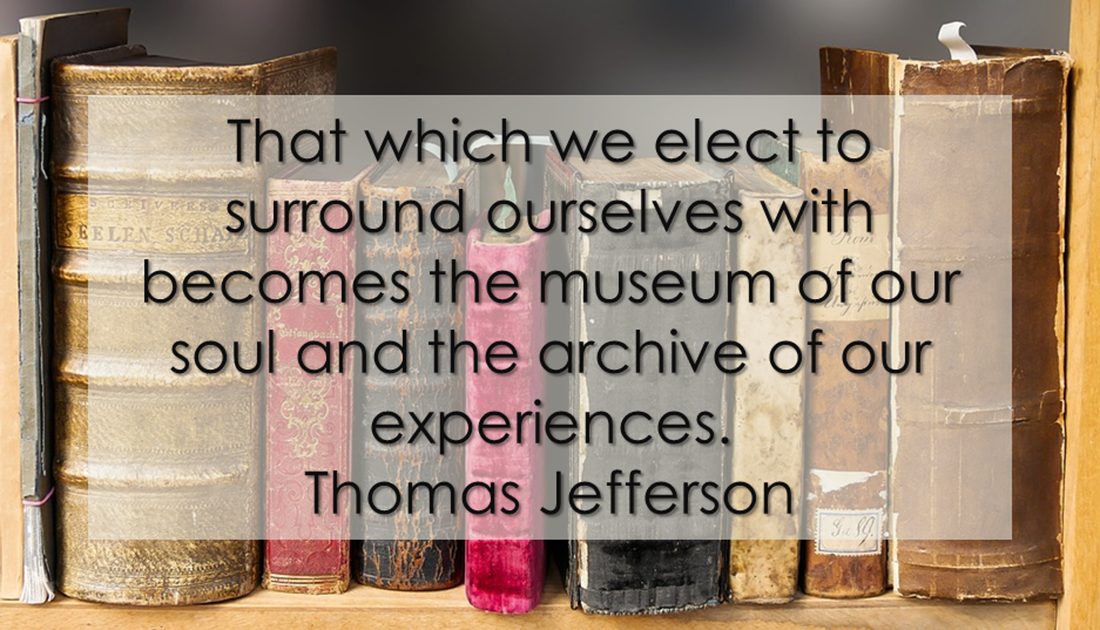
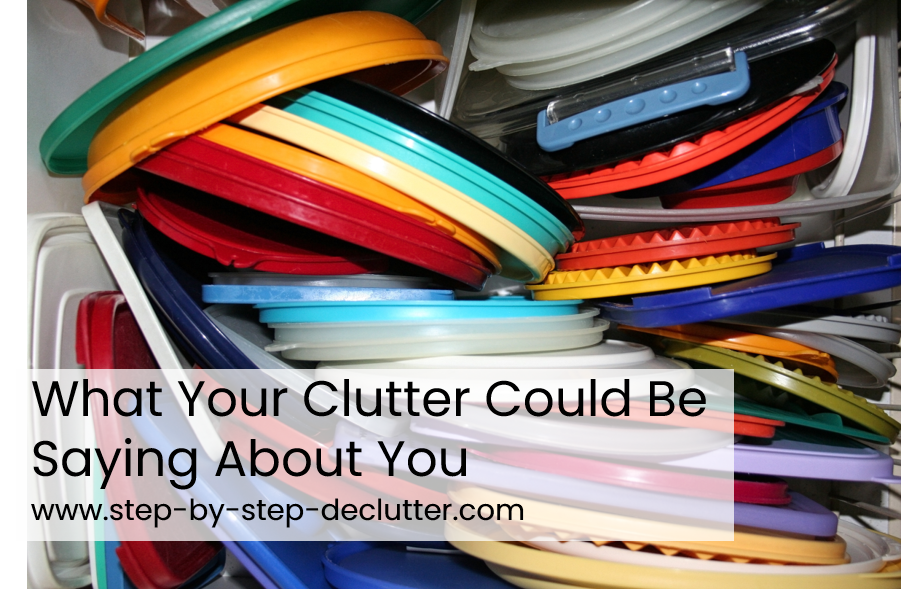
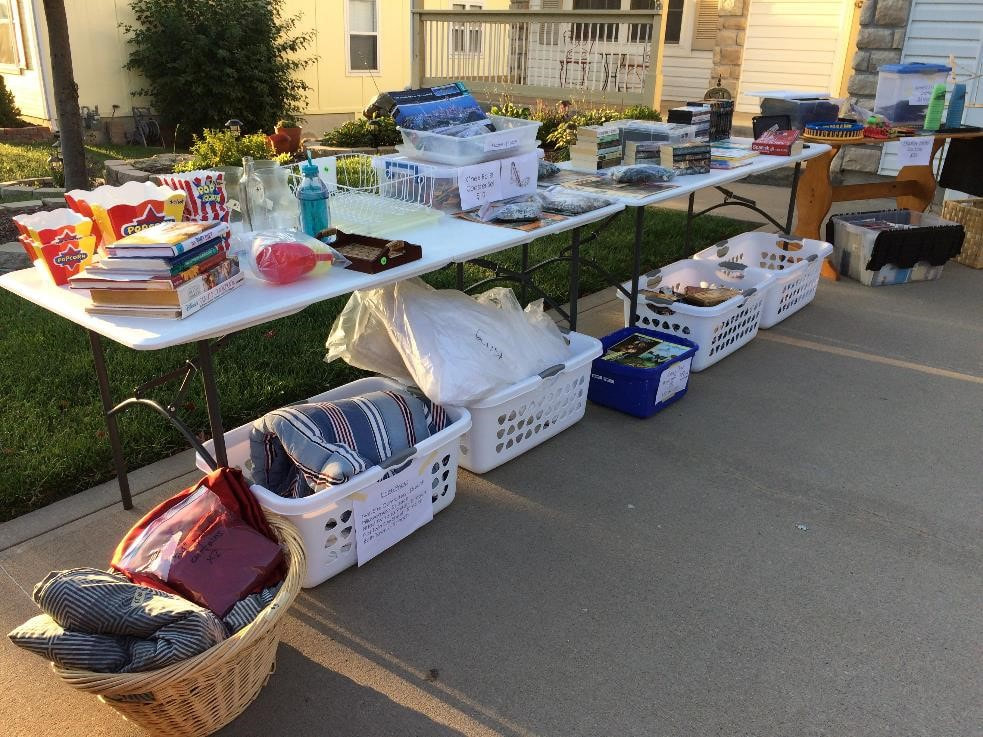
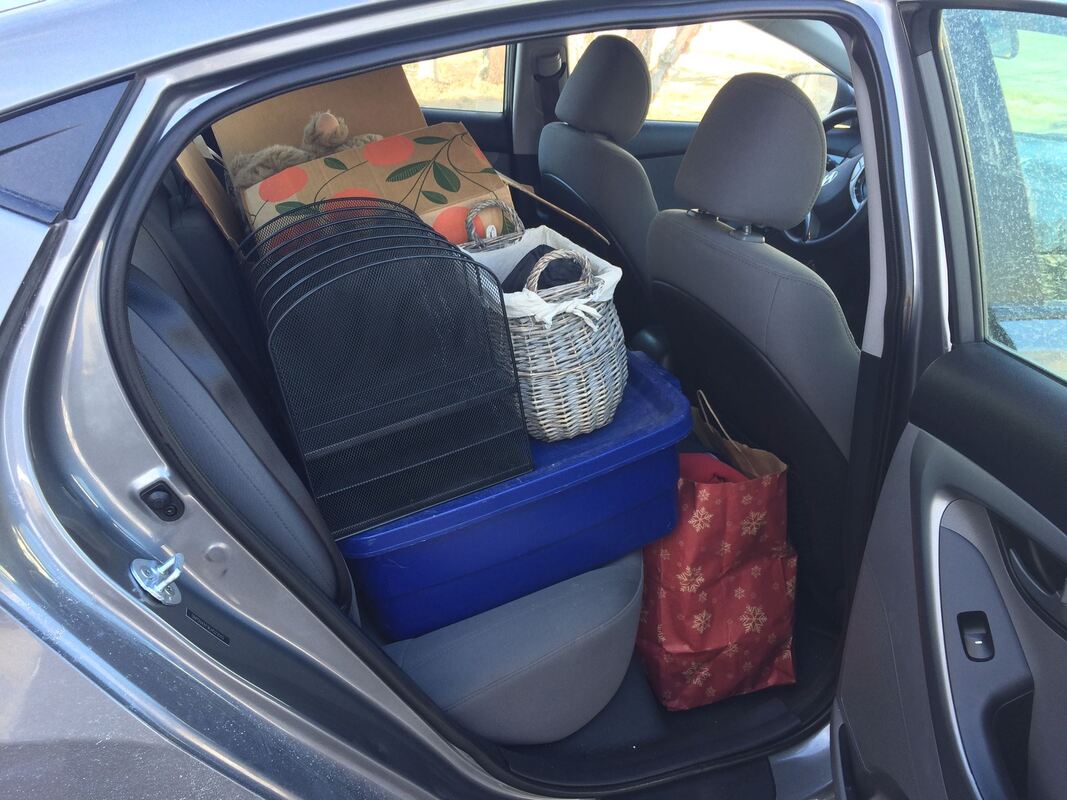

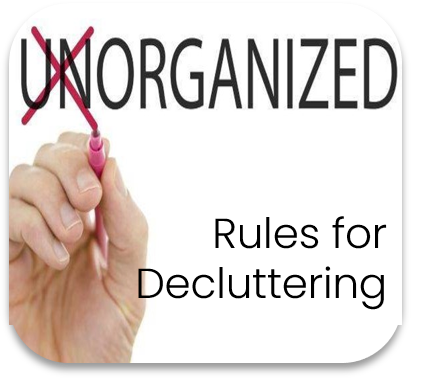
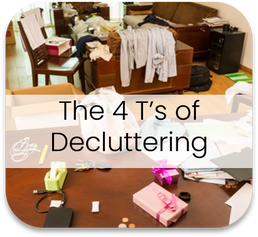
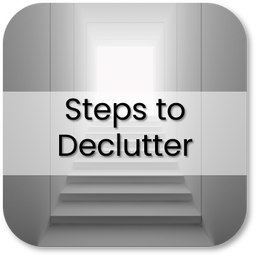
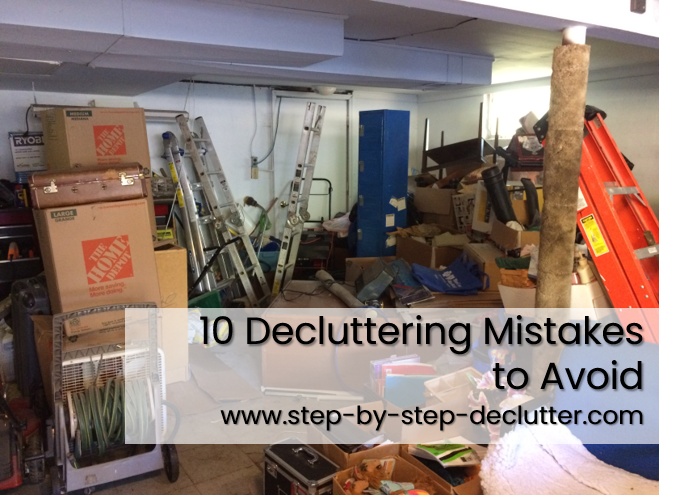
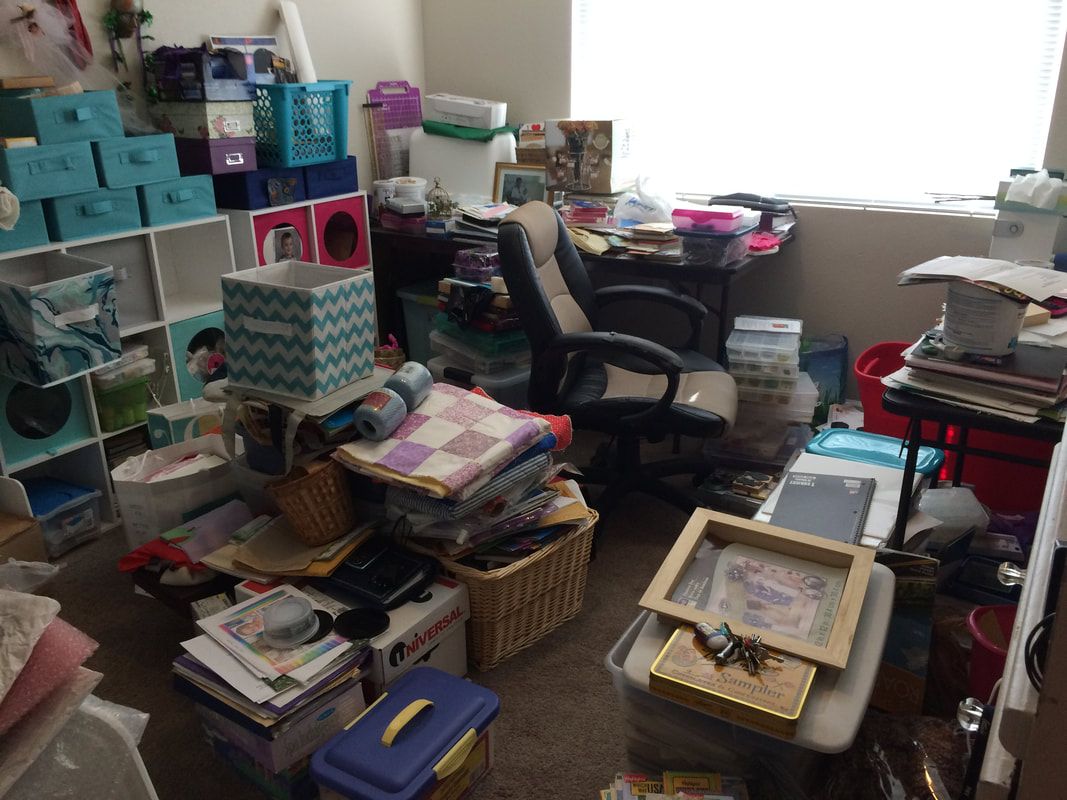

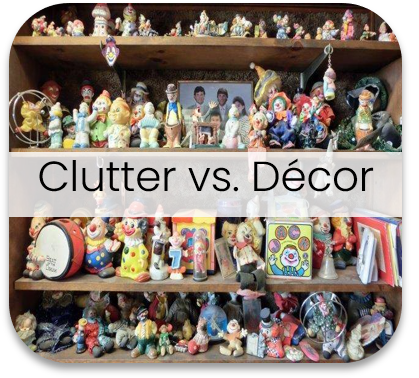


 RSS Feed
RSS Feed